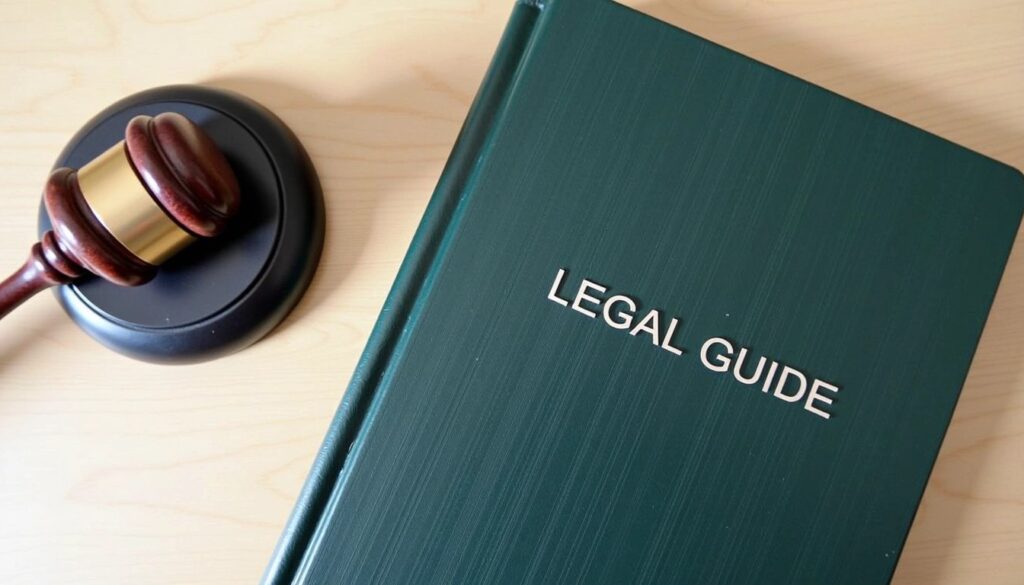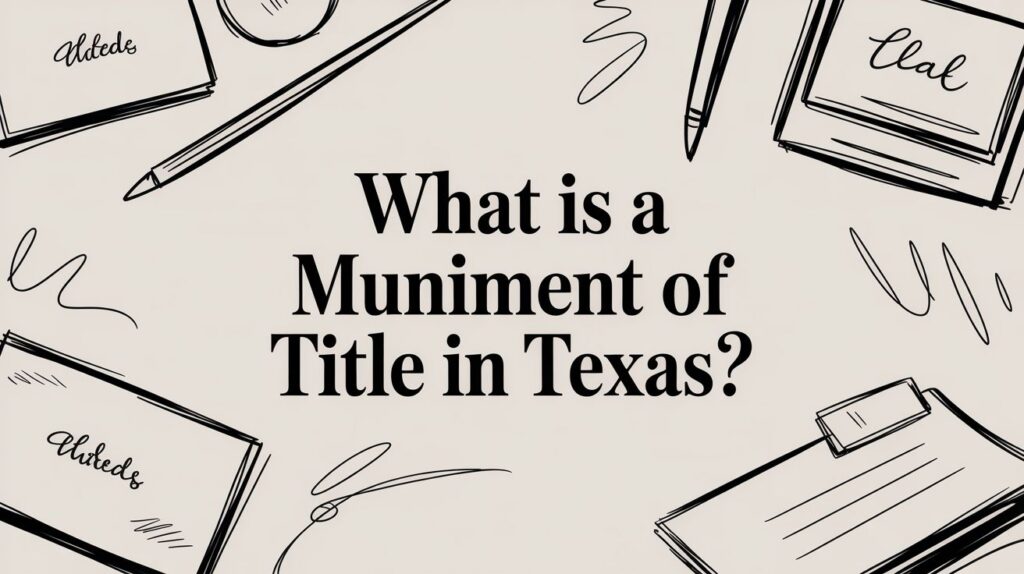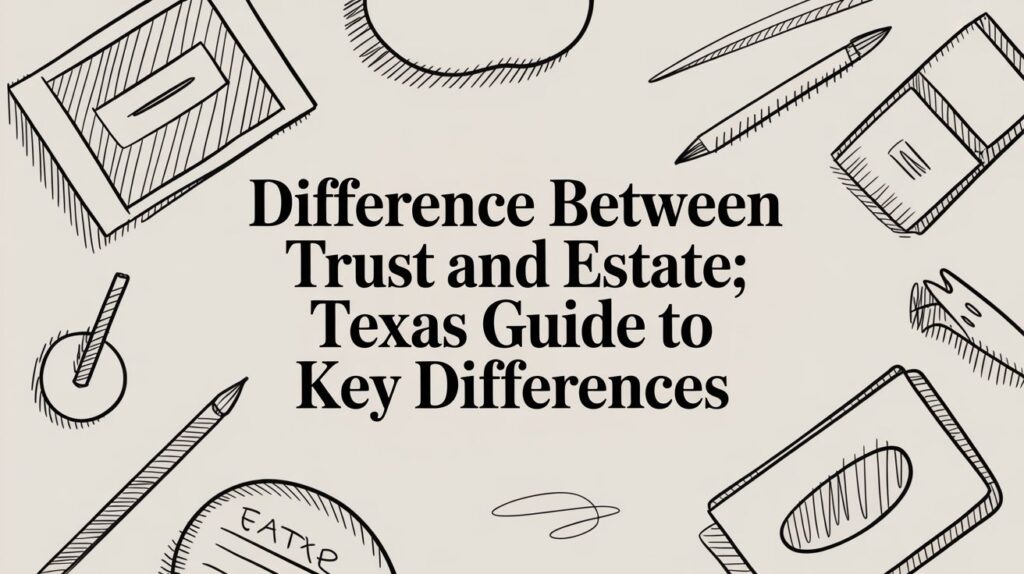When probate is required in Texas, it often signals a critical legal step for managing and distributing a deceased person’s estate. Probate is the court-supervised process of authenticating a will, resolving debts, and distributing assets to beneficiaries. While many people might wish to avoid it, there are specific scenarios where probate becomes necessary. Let’s dive into the top five situations where probate is required in Texas and explore the reasons behind them.
What Is Probate, and Why Is It Necessary?
Probate serves as a safeguard, ensuring that a deceased individual’s wishes are respected and their obligations are settled. In Texas, the necessity for probate hinges on the nature and complexity of the estate. A clear understanding of when probate is required in Texas can help families navigate this often complex process efficiently.
For example, if someone dies leaving behind real estate that’s solely in their name, the property cannot be transferred to heirs without probate. Similarly, if a valid will exists, the court must authenticate it through probate to confirm its validity.
Now, let’s break down the top scenarios where probate is required in Texas.
Scenario 1: The Decedent Owned Property Solely in Their Name

One of the most common reasons probate is required in Texas is when the deceased owned property solely in their name. Assets such as real estate, bank accounts, or investment accounts titled exclusively to the decedent cannot be transferred to heirs or beneficiaries without going through probate.
Real-Life Example: The Family Home
Imagine a scenario where a parent passes away, leaving behind a house titled solely in their name. Despite having a will that names their children as beneficiaries, the title cannot legally transfer to the children without probate. The court-supervised process ensures that the rightful heirs are recognized and that the transfer of ownership complies with Texas law.
Importance of Clear Title Transfers
Probate plays a critical role in securing a clear title for properties. Without this process, unresolved ownership can create future legal complications. For instance, title companies often require probate documentation to issue title insurance or to validate ownership, which is necessary for selling or refinancing the property.
Why Probate Is Essential in This Case
This scenario highlights why probate is often unavoidable in Texas when dealing with sole ownership. By ensuring the proper legal transfer of ownership, probate prevents potential disputes, guarantees the decedent’s intentions are honored, and provides the heirs with a solid legal standing for the property in question.
Scenario 2: The Decedent Did Not Have a Will

When someone dies intestate (without a will), Texas law dictates how their assets are distributed. This process, governed by the Texas Estates Code , chapter 256, ensures that the estate is divided among heirs based on legal precedence rather than personal wishes. In such cases, probate is required to identify heirs and allocate assets appropriately.
Real-Life Example: A Sudden Loss
Consider a scenario where a single individual passes away unexpectedly without leaving a will. Their estate includes a car, a small bank account, and a few valuable possessions. Without a will, their family members may disagree on how to divide these assets. Probate steps in to establish a legal framework, ensuring the estate is distributed fairly among qualifying heirs.
Legal Implications of Intestate Succession
In Texas, intestate succession laws prioritize close relatives, such as spouses and children, when distributing assets. If no immediate family members are alive, more distant relatives, such as siblings or cousins, may inherit. However, identifying rightful heirs can be complex, especially in blended families or when estranged relatives come forward.
Why Probate Matters
Probate is essential in this scenario to:
- Identify Legal Heirs: The court determines who is entitled to inherit under state law.
- Prevent Family Conflicts: By following a legal framework, probate reduces the chances of disputes among family members.
- Ensure Asset Distribution: Probate provides a transparent method to allocate assets fairly, avoiding delays or mismanagement.
Without probate, the lack of a will can lead to prolonged uncertainty, making it difficult for families to resolve disputes or access inherited assets in a timely manner. Engaging a probate attorney can further streamline the process and reduce stress for all involved.
Scenario 3: There Are Debts or Disputes to Settle

Debts and disputes are another major reason when probate is required in Texas. Creditors have the right to file claims against an estate, and probate provides a legal venue to address these claims, ensuring they are resolved in an orderly manner.
Real-Life Example: Handling Outstanding Debts
Imagine a deceased individual who left behind significant financial obligations, including credit card debt, a mortgage, and unpaid medical bills. Without probate, creditors might pursue heirs directly or create disputes about the prioritization of payments. Probate allows the executor to inventory all debts, validate creditor claims, and pay off obligations using the estate’s assets. For example, if the decedent’s estate includes both cash and valuable artwork, the probate court can authorize the sale of assets to settle debts.
Addressing Disputes Among Heirs
In some cases, heirs might disagree over how debts should be handled or who should bear certain financial responsibilities. Probate offers a structured process to resolve such disputes by allowing the court to mediate and enforce legal guidelines. For example, if an heir contests the validity of a debt or a creditor’s claim, probate ensures a fair review and resolution.
Why Probate Matters
Probate protects all parties involved by:
- Providing Legal Protection: Executors and heirs are shielded from personal liability for the decedent’s debts as long as they act within the law.
- Ensuring Transparency: Probate requires a detailed inventory of the estate’s assets and liabilities, which is shared with creditors and heirs, reducing confusion and potential conflict.
- Prioritizing Claims: Texas law sets a clear order for paying debts, such as taxes, secured loans, and unsecured obligations. Probate enforces this order, ensuring fairness.
Without probate, unresolved debts or disputes could lead to prolonged delays, legal challenges, and emotional strain for the family. Consulting a probate attorney can help executors manage these complexities efficiently, ensuring the estate is settled in compliance with Texas law.
Scenario 4: Probate Required When Beneficiary Designations Are Absent

Certain assets, like life insurance policies, retirement accounts, and payable-on-death (POD) bank accounts, can typically bypass probate if they have designated beneficiaries. These designations allow for a direct transfer of funds to the named individual upon the account holder’s death. However, there are instances where probate becomes necessary due to missing or outdated beneficiary information.
Real-Life Example: A Forgotten IRA
Consider a situation where someone passes away, leaving behind a retirement account without a designated beneficiary or with a beneficiary who has predeceased them. In such cases, the account’s funds cannot be transferred automatically and must go through probate to determine the rightful heirs. Another example could involve a life insurance policy where the beneficiary is listed as “Estate,” requiring the court to intervene to distribute the proceeds.
Why These Situations Arise
Many people forget to update their beneficiary designations after significant life events such as marriages, divorces, or the birth of children. Additionally, some individuals may mistakenly believe that having a will negates the need to designate beneficiaries, which can complicate matters after their passing.
Why Probate Matters
Probate ensures that these unclaimed or improperly designated assets are distributed according to state law or the decedent’s will. This process guarantees fairness and legal compliance by:
- Identifying Heirs: The probate court determines who is entitled to inherit assets when no beneficiaries are named.
- Ensuring Asset Distribution: The court ensures that assets are allocated in accordance with the decedent’s wishes or state intestacy laws.
- Resolving Oversights: By addressing incomplete or outdated beneficiary designations, probate prevents disputes and confusion among potential heirs.
Preventing Probate in These Cases
To avoid probate in these scenarios, it’s essential to:
- Regularly review and update beneficiary designations.
- Name contingent beneficiaries to cover cases where the primary beneficiary is unavailable.
- Work with an estate planning professional to ensure all assets are appropriately titled and designated.
Taking these proactive steps can save time and reduce stress for loved ones, ensuring a smoother transfer of assets without the need for court intervention.
Scenario 5: Complex or Contested Estates

Complex estates, or those involving disputes among heirs, often require probate. This scenario typically arises when multiple parties contest the will or disagree about asset distribution.
Real-Life Example: A Contested Will
Imagine a wealthy individual with several children passes away, leaving behind a will that’s unclear or seemingly unfair. Probate allows the court to interpret the will, resolve disputes, and enforce its terms.
Why Probate Matters
In contested estates, probate provides a structured process to resolve disagreements. The court acts as an impartial mediator, ensuring that the deceased’s intentions are honored and legal disputes are minimized.
Alternatives to Probate in Texas
While there are clear scenarios when probate is required in Texas, it’s worth noting that some estates can bypass probate. Texas offers mechanisms like small estate affidavits and transfer on death deeds to streamline the process for qualifying estates.
Small Estate Affidavit
If the estate’s total value is less than $75,000 (excluding the homestead), a small estate affidavit may allow heirs to inherit without formal probate. This option is faster and less costly.
Transfer on Death Deeds
Real estate owners can use a transfer on death deed to name beneficiaries who will inherit the property without probate. This proactive step simplifies the process for heirs.
Conclusion
Understanding when probate is required in Texasis crucial for anyone involved in estate planning or administration. Whether dealing with sole ownership of property, intestate estates, debts, or contested wills, probate serves as a vital legal process to ensure fairness and clarity.
By being proactive and exploring probate alternatives where possible, families can reduce stress and costs while honoring their loved one’s legacy. Remember, consulting with an experienced probate attorney in Texas can make the process smoother and more manageable. After all, navigating probate doesn’t have to be overwhelming when you know what to expect.








